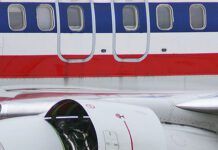If doctors bury their mistakes and architects advise their clients to plant vines, what does the FAA do about its blunders? Existing as it seems to in its own alternate reality, the FAA simply pretends its mistakes never happened. Or it just refuses to acknowledge or answer legitimate questions about them.
The mistake du jour is the agency’s embarrassing mini-scandal involving cheating on a screening exam for air traffic controllers. We reported on this story earlier this week, which Fox Business News broke in a short series of reports mistitled Trouble in the Skies. (It really should be Insanity at 800 Independence Ave., for this doesn’t have a lot to do with skies, but with desks in airless FAA warrens.)
We reported on this more than a year agowhen it surfaced that the FAA, in an understandable bid to attract more diverse controller candidates, devised a screening test that included a biographical profile, something to do with self-confidence and esteem. This fits into a general pattern of FAA mismanagement of hiring and training resources for controllers and ATC staff.
Unfortunately, when the biographical filter—which no one seems to understand—was invoked, the FAA stopped giving as much weight to candidates with either military or college air traffic control training and put all candidates into the same, off-the-street pool. As a result, many of those otherwise highly qualified candidates were failing the biographical test and the FAA was falling and continues to fall far short of its controller hiring needs. The Fox story revealed that an FAA insider, a member of the National Black Coalition of Federal Aviation Employees, secretly passed on answers to the bio test, assuring the NBCFAE recipient of a phone voice mail that these were guaranteed to generate a passing grade.
And now, there’s much hand wringing and panty twisting about how this diminishes system safety. I’m not buying it. The real problem is the biographical filter in the first place. It was perceived by many in the industry—maybe even FAA HR, for all we know—as being ill-conceived, ineffective and bogus as means of triaging candidates. Since it wasn’t a legitimate screening method to find better candidates, how is it that cheating on it reduces system safety? Does the morality of following rules everyone knows to be miscast trump the natural tendency to, you know, actually achieve the stated goal? Is it a bigger risk to have candidates who gamed the test or to have no candidates at all? It would appear that a policy everyone considers useless may serve as a petri dish for inevitable malfeasance.
The larger outrage is that the cheating appears to have originated within the agency, which tells We The Regulated that the FAA doesn’t even follow its own rules. Why should the rest of us bother? Or if it doesn’t, it doesn’t feel compelled to explain why someone in the FAA decided not to. If there’s moral rot, that’s it. Last September, two Illinois congressmen introduced the Safe Towers Act, which would have directed the FAA to scrap the bio screening or at least return to favoring college-trained or military-experienced candidates. It died in Congress. I’m sure a bill entitled An Act To Reform the Entire FAA and This Time We’re ^%$ing Serious would suffer a similar fate. The beat goes on; mediocrity is its own reward.
Because we appreciate the services they provide and consider them fellow professionals, we in aviation understandably tend to romanticize controllers as jut-jawed super heroes and the FAA’s inept hiring policies that make candidates so hard to find tends to reinforce that sentiment. But I’ve spent enough time in towers, TRACONs and Centers to think the controller workforce is similar to any other, albeit one with a different skill set. I suspect if it were possible to measure this, you’d find a recognizable bell curve with a small band of extraordinary talents, a broad number of people who get the job done and a small band who never should have been hired but remain in place because of federal worker protections. Just as we should disabuse ourselves of the notion that hardly anyone can do this job, we should maybe start thinking that many more can.
If the FAA doesn’t get this fixed I think the agency risks losing something that only the colleges can provide. Increasingly, automation will play a critical role in ATC, to the point that it won’t be too long before most of the enterprise is driven by machines. Kids coming out of the likes of Embry Riddle and UND are bringing engineering, technical and automation skills that the FAA will desperately need and that no off-the-street hire, even the exceptionally talented ones, will be able to provide. They’re the ones who will percolate up through the ranks to staff the future and the FAA is failing to provide for that future.
Maybe this is impossible to address directly because of the way federal agencies plod along in groupthink mode. But the FAA has done it and recently. In the blizzard of bad press the FAA generates for itself, we may have forgotten that just a few months ago, the agency got deserved kudos for its proposed small UAS regulation. It was late, but it made sense and wasn’t festooned with the silliness that accompanies so many proposed regulations. I was told that the various warring factions in the FAA finally threw up their hands and turned the work over to mostly one guy, whose name appears on the proposal: Lance Nuckolls. This is probably an exaggeration, but all I know for sure is that the UAS NPRM was good work. By the FAA.
So maybe the HR equivalent of Lance needs to be detailed to the controller hiring challenge. It shouldn’t be as hard as the FAA is making it. I’m sure we could do better for we sure as hell can’t do much worse.


































